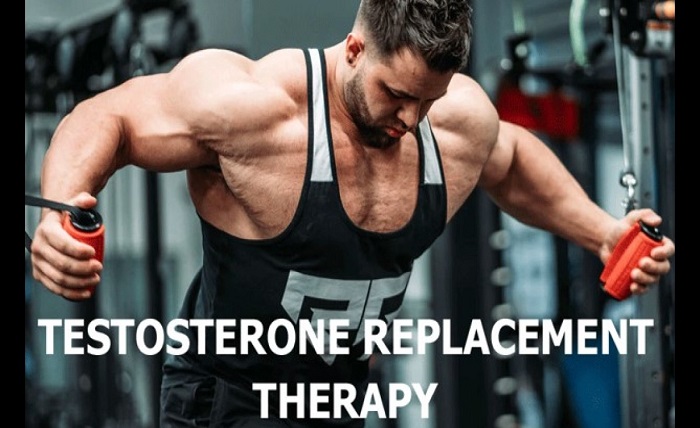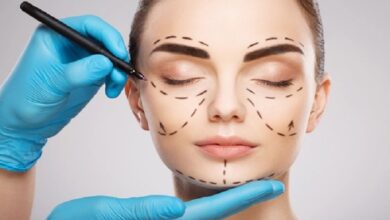Testosterone Replacement Therapy: Unlocking Your Full Potential

Testosterone replacement therapy (TRT) is a medical treatment that helps restore testosterone levels in individuals with low testosterone. This therapy offers a range of benefits, from increasing energy levels to improving overall well-being. In this comprehensive guide, we will explore the ins and outs of testosterone replacement therapy, discussing its benefits, different forms, potential risks, and how it can positively impact your life.
Introduction
Testosterone is a hormone that plays a crucial role in the development of male reproductive tissues and characteristics. However, both men and women require optimal testosterone levels for overall health and well-being. When testosterone levels dip below normal, it can lead to a variety of symptoms and health issues. This is where testosterone replacement therapy comes into the picture.
What is Testosterone Replacement Therapy?
Testosterone replacement therapy long island, as the name suggests, is a treatment that aims to restore testosterone levels to normal ranges. It involves the use of exogenous testosterone, which can be administered through various methods, to supplement the body’s natural testosterone production.
Signs and Symptoms of Low Testosterone
Low testosterone levels can manifest in various ways. Some common signs and symptoms of low testosterone include:
- Fatigue and decreased energy levels
- Decreased sex drive and libido
- Erectile dysfunction
- Mood swings and irritability
- Loss of muscle mass and strength
- Increased body fat
- Decreased bone density
- Memory problems and difficulty concentrating
- Hair loss
Causes of Low Testosterone
Several factors can contribute to low testosterone levels, including:
- Aging: Testosterone production naturally declines with age.
- Hypogonadism: A medical condition where the body doesn’t produce enough testosterone.
- Chronic illness: Certain illnesses, such as diabetes or kidney disease, can affect testosterone production.
- Medications: Some medications can suppress testosterone production.
- Lifestyle factors: Obesity, excessive alcohol consumption, and high-stress levels can impact testosterone levels.
Benefits of Testosterone Replacement Therapy
Testosterone replacement therapy offers a range of benefits for individuals with low testosterone, including:
- Increased energy levels and improved mood
- Enhanced libido and sexual function
- Increased muscle mass and strength
- Improved bone density
- Better cognitive function and memory
- Increased sense of well-being and quality of life
Different Forms of Testosterone Replacement Therapy
Testosterone replacement therapy is available in various forms. Let’s explore the most common ones:
– Injectable Testosterone
Injectable testosterone is one of the most popular forms of TRT. It involves injecting testosterone directly into the muscles. This method provides long-lasting effects and allows for better control of testosterone levels.
– Testosterone Gels and Creams
Testosterone gels and creams are applied topically and absorbed through the skin. They offer convenience and ease of use, but it’s essential to follow proper application guidelines to avoid accidental transfer to others.
– Testosterone Pellets
Testosterone pellets are small implants inserted under the skin, usually in the buttocks. They slowly release testosterone over several months, eliminating the need for frequent administration.
– Buccal Testosterone Tablets
Buccal testosterone tablets are placed against the gum and gradually absorbed into the bloodstream. This method offers a discreet and convenient way of administering testosterone.
Choosing the Right Testosterone Replacement Therapy Option
Choosing the right form of testosterone replacement therapy depends on various factors, including individual preferences, lifestyle, and the advice of a healthcare professional. It’s crucial to consult with a qualified healthcare provider to determine the most suitable option for you.
Testosterone Replacement Therapy and its Effects on Health
– Positive Effects
Testosterone replacement therapy can have several positive effects on overall health and well-being. These include:
- Increased muscle mass and strength
- Improved bone density
- Enhanced cognitive function and memory
- Boosted libido and sexual function
- Elevated mood and improved quality of life
– Potential Risks and Side Effects
While testosterone replacement therapy is generally safe, it’s essential to be aware of potential risks and side effects. These may include:
- Acne and oily skin
- Fluid retention
- Increased risk of blood clots
- Sleep apnea
- Enlarged breasts (gynecomastia)
- Prostate enlargement (benign prostatic hyperplasia)
Monitoring and Adjusting Testosterone Levels
When undergoing testosterone replacement therapy, regular monitoring of testosterone levels is crucial. This helps ensure optimal dosing and adjustment, as each individual’s response to therapy may vary. Healthcare providers may perform blood tests to assess hormone levels and make necessary adjustments to the treatment plan.
Testosterone Replacement Therapy and Exercise
Exercise plays a vital role in maintaining overall health, and it can also enhance the benefits of testosterone replacement therapy. Regular physical activity, including strength training and cardiovascular exercises, can help improve muscle mass, bone density, and overall well-being.
Testosterone Replacement Therapy and Sexual Function
Testosterone replacement therapy can have a significant impact on sexual function. It can improve libido, erectile function, and overall sexual satisfaction. However, it’s essential to discuss any concerns or issues with a healthcare provider to ensure the most appropriate treatment approach.
Testosterone Replacement Therapy for Women
While testosterone replacement therapy is commonly associated with men, it can also be beneficial for women with low testosterone levels. Women may experience symptoms such as fatigue, low libido, and mood swings due to low testosterone. A healthcare provider can determine if testosterone replacement therapy is suitable and establish an appropriate treatment plan.
Common Myths and Misconceptions about Testosterone Replacement Therapy
There are several myths and misconceptions surrounding testosterone replacement therapy. It’s important to separate fact from fiction. Here are a few common misconceptions:
- Testosterone replacement therapy will cause aggressive behavior.
- Testosterone therapy will lead to prostate cancer.
- TRT is only for older men.
- Testosterone therapy will cause baldness.
- TRT is a quick fix for weight loss.
Conclusion
Testosterone replacement therapy offers a viable solution for individuals experiencing low testosterone levels. By restoring hormone balance, TRT can improve energy levels, sexual function, muscle mass, and overall well-being. It’s essential to consult with a qualified healthcare professional to determine the best approach and monitor progress throughout the treatment.
FAQs
Q1: Is testosterone replacement therapy safe? A1: When monitored by a healthcare professional, testosterone replacement therapy is generally safe. However, it’s important to be aware of potential risks and side effects.
Q2: How long does it take to see the effects of testosterone replacement therapy? A2: The time to notice the effects of testosterone replacement therapy may vary from person to person. Some individuals may experience improvements within weeks, while others may take several months.
Q3: Can testosterone replacement therapy help with weight loss? A3: While testosterone replacement therapy can contribute to increased muscle mass and improved metabolism, it’s not a quick fix for weight loss. A balanced diet and regular exercise remain crucial for sustainable weight management.
Q4: Can women undergo testosterone replacement therapy? A4: Yes, women with low testosterone levels may benefit from testosterone replacement therapy. However, it’s important to consult with a healthcare provider to determine suitability and establish an appropriate treatment plan.
Q5: Are there any natural alternatives to testosterone replacement therapy? A5: Some lifestyle changes, such as regular exercise, a healthy diet, stress reduction, and quality sleep, may help optimize testosterone levels naturally. However, for individuals with clinically low testosterone, testosterone replacement therapy may be necessary.





